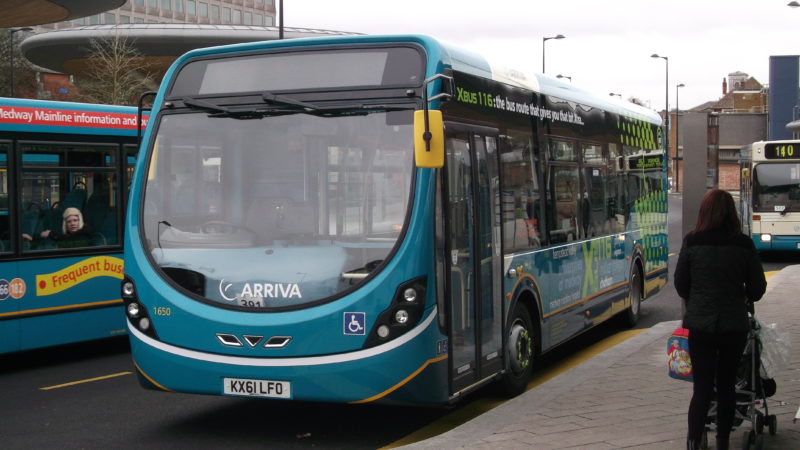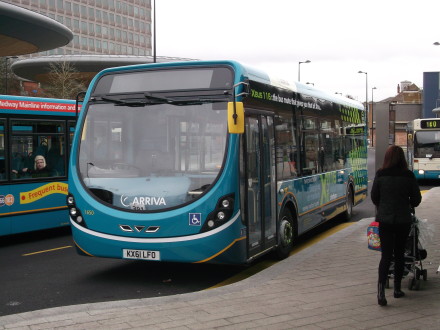

Buses are the Cinderella of the transport debate. Debates over airports shape elections. Politicians champion high-profile infrastructure projects like high speed rail. Tube strikes capture far beyond London. But at the national level, bus services too often fail to receive the attention they deserve, even as cuts to bus services devastate local communities and exacerbate existing inequalities.
The three decades since the privatisation of the bus market have seen a fundamental failure to acknowledge the status of buses as a social good. Under deregulation, private bus operators are free to pick and choose the routes and frequency of services they wish to run.
Huge profits can be made, with a relatively low cost base and the freedom to cherry-pick the most profitable routes, while demanding public subsidy to run services on those which are not. With reductions in public funding, the result has been thousands of bus miles routes lost in the past 5 years alone – many in the areas that need the services most.
Buses matter. 2 in every 3 journeys taken by public transport are by bus. In vulnerable communities, reductions in bus services can be the final blow, making it difficult or prohibitively expensive for jobseekers to reach employment opportunities and training.
The ability to attend hospital appointments or to reach affordable and varied food from a supermarket have knock-on effects for nutrition and health outcomes. For older people, buses can mean keeping staying independent for longer, reducing strain on social care in the area.
There’s a better way of delivering buses, one that recognises their intrinsic value as community assets and drivers of equality, rather than simply as commercial enterprises.
Run on a not-for-profit basis, many of the routes lost in recent years would be viable, even with reduced public subsidy. Across the country, co-operative, social enterprise and other forms of not-for-profit bus operators are proving that it can be done.
HCT Group – which has its origins in Hackney Community Transport, founded in 1982 – is the world’s leading transport social enterprise, providing over 20 million passengers trips each year. Its operations range from running red London buses for TfL through to social care and school transport.
By reinvesting all profits in keeping fares low and routes open, not-for-profit operators like HCT are maximising the social value of buses, enabling people to access work, education and public services and tackling social exclusion and loneliness. In a very practical way, these community transport operators are reducing inequality in the areas they serve.
The Government’s push to devolve greater powers to local authorities and its current consultation on a new Buses Bill create an opportunity for us to re-think the role of buses and how they are delivered – putting the interests of communities centre stage.
The extension of TfL-style powers to the rest of the country enables councils and combined authorities to take greater control over the number and types of bus companies operating in their area, the chance for them to set fares and to specify routes, and to choose to work with existing not-for-profit operators, or to even set up one from scratch.
Via our ‘People’s Buses’ campaign, the Co-operative Party is working to highlight community transport as a viable and practical option for local authorities, as well as fighting for the legislative and regulatory support the sector needs to expand and thrive.
Specifically, we want to see:
- Government and relevant devolved institutions placing more emphasis and effort on developing the community transport and not for profit sectors further, by providing expertise and funding.
- Local councils reviewing their procurement strategies to ensure that they are fit-for-purpose and give not-for-profit operators equal treatment.
- An extension of existing Community Asset legislation to take into account local bus services. This extension could give communities the right to designate bus routes as Community Assets this would give them more say in routes being changed or cut. This change could also open up new avenues for community right to run and community right to bid in future.
For the first time in 30 years, we have the opportunity to re-think the purpose of buses, and how they’re delivered. No longer the Cinderella of transport policy, it’s time for Labour to put local buses at the heart of its vision for a devolved Britain – rightly placing public transport alongside health and education as a means of creating opportunity and tackling social inequality.
Ben West works for the Co-op Party




More from LabourList
Antonia Romeo appointed to lead civil service as new Cabinet Secretary
‘If Labour is serious about upskilling Britain, it must mobilise local businesses’
Stella Tsantekidou column: ‘What are we to make of the Labour Together scandal?’